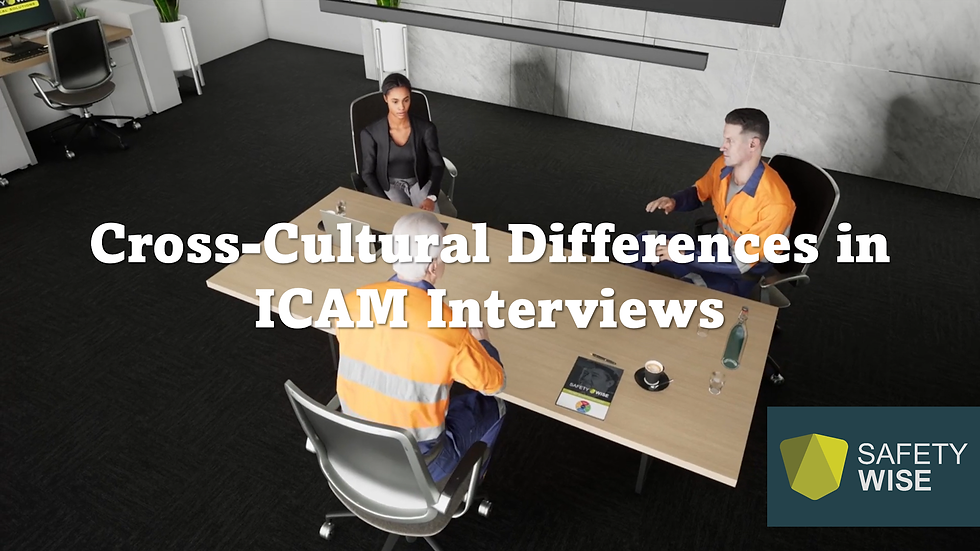What Makes a Good Investigator?
- Geoff Roberts
- Feb 5, 2019
- 3 min read

So, the conversation normally starts like this: ‘So Geoff, what do you do with yourself?’
My normal response is that I work 80% of my time as an aviation consultant, about 15% of my time teaching investigation techniques and 5% of my time working as a contracted, independent investigator.
Once we have got past the usual questions of ‘Do you watch Air Crash Investigations’ and ‘What happened to MH370?’ the conversation usually jumps to the contracted, independent investigator role. Often times I have some surprised looks when I explain why an ‘aviation guy’ is investigating things like bulldozer fires or semi-trailer rollovers. Although I have been doing this for many years, the intellectual curiosity of investigating is the thing I really enjoy.
So what makes a good investigator? It is a question that I have mulled over for many years and the answer is not really that straightforward. Often times, people see an investigator in the mould of the Hollywood character, running around with a torch, searching for hair strands and busting the case wide open in the one-hour timeslot (less advertising space). Reality is far from that.
For me, the first and most important attribute for a good investigator is that of thoroughness. Sometimes it is the most innocuous or seemingly inconsequential piece of evidence that becomes key to completing an effective investigation. The ‘intellectual curiosity’ mentioned before is a very large component of this. If you simply just trust what someone says or believe that provided details are accurate without having you or a member of your team check and verify, then you can end up in a difficult place. I know, I have been there…
Learning from your experience as an investigator is just as critical as learning from the outcomes of an investigation. Satisfying that gnawing, internal curiosity with a drive to get better at investigating is essential. On the training courses, attendees often struggle with understanding how the investigation process fits together, and I always counter with the fact that any investigation is simply a series of process steps. If you are struggling with the next step, it is probably a reflection that the previous step has not been executed effectively enough and that you need to take a step backwards and complete that thoroughly before trying to move ahead. Continually questioning your own team’s performance and satisfying that curiosity is a very large part of this process.

It is also important to be outcome focused, not process focused. An investigation is simply a series of steps that lead to a conclusion. Provided the steps are executed effectively, the outcome (what can we do to prevent this happening again?) is simply a conclusion at the end of the process. If you stay focused on achieving an effective investigation throughout the various steps in the process, you will end up with an effective investigation.

Interested in Knowing More?
Further information on Safety Wise’s Incident Cause Analysis (ICAM) Training is available from our website: http://www.safetywise.com/
Additional ICAM Related Services
Safety Wise also offers the following additional services for sites that adopt the ICAM investigation analysis method:
Quality review of incident investigations using ICAM
Trend analysis of organisational factors contributing to serious incidents
Participation in investigations as an external / independent party

ABOUT THE AUTHOR- Geoff Roberts (Aviation Risk Manager)
Geoff has been involved with aviation all his working life and has been passionate about flying since he was a child.
He has a background as a rotary-wing and fixed-wing pilot in both military and civilian fields and has an inmpressive track record in management and leadership roles.
Geoff’s passion for the management of aviation risk stems from his inquiring mind and desire to improve safety outcomes.
He has been involved in multiple high-profile aircraft incident and accident investigations and these skills have readily taken root in the broader application of ICAM to any field.
Geoff uses the skills developed as a senior flight instructor to assist organisations with incident investigations and facilitating investigation training.




Comments